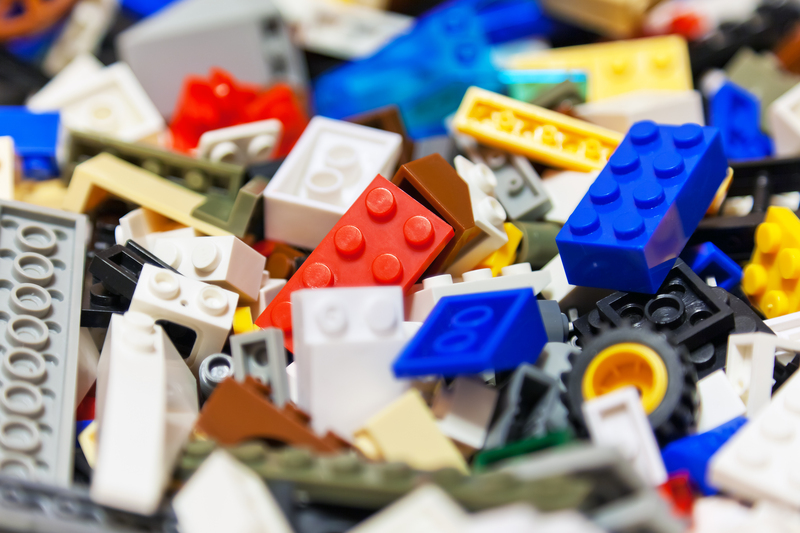Turning Old Pots and Pans Into New Possibilities Through Recycling
Have you ever opened your kitchen cabinets and wondered what to do with that growing pile of mismatched old pots and pans? If your cookware is scratched, warped, or simply outdated, don't toss it in the trash just yet! Turning old pots and pans into new possibilities through recycling is eco-friendly and surprisingly creative. In this comprehensive guide, we'll explore how recycling your cookware not only helps the planet but also opens the door to ingenious upcycling ideas, creative reuse, and a more sustainable kitchen.
Why Should We Recycle Old Pots and Pans?
The global issue of kitchen waste extends beyond food scraps--millions of used pans and pots end up in landfills each year. But by choosing to recycle cookware, we:
- Reduce landfill waste: Metal pots and pans can take centuries to fully decompose.
- Conserve natural resources: Extracting metals like aluminum and steel is energy-intensive and resource-draining.
- Support eco-friendly practices: By recycling, we close the loop on our consumption patterns and foster a circular economy.
- Encourage ingenuity and creativity: Repurposing old kitchen items gives new life to what would otherwise be waste.

What Kinds of Pots and Pans Can Be Recycled?
Before tossing your cookware in the recycling bin, it's important to understand which types of pots and pans are suitable for recycling facilities. The most common recyclable materials include:
- Stainless steel cookware
- Cast iron pans and skillets
- Aluminum pots and pans
- Copper cookware
However, not all old pots and pans for recycling are accepted. Items with non-stick coatings (like Teflon), glass lids, or plastic handles may require special consideration. Always check with your local recycling center for their guidelines.
How to Prepare Cookware for Recycling
Getting your kitchenware ready for recycling involves several steps:
- Remove non-metal parts: Take off any plastic handles, glass lids, or silicone elements.
- Clean your pans: Scrape off any food residue and wash the cookware thoroughly.
- Sort by material: Keep stainless steel separate from aluminum or cast iron to aid the recycling process.
- Contact your recycling center: Inquire if they accept old cookware and if there are specific drop-off locations.
Recycling Old Pots and Pans: The Environmental Benefits
When you recycle kitchen pans and pots, you're not just clearing out clutter--you're making a measurable environmental impact. Here's how:
- Less landfill waste: Recycling helps divert tons of metal away from overburdened landfills.
- Energy savings: Producing metals from recycled materials requires up to 95% less energy than mining and refining new ore.
- Reduced greenhouse gas emissions: By recycling, we cut down on CO2 emissions associated with manufacturing.
- Resource conservation: Metals like aluminum and stainless steel can be recycled almost indefinitely without losing quality.
Creative Ways to Reuse and Upcycle Old Cookware
If your local recycling center doesn't accept certain types of cookware, or if you want to try your hand at creative projects, consider repurposing your old pans at home. Here are a few inspiring ideas:
Garden Planters and Flower Pots
Turn worn-out pots and pans into unique planters for your garden or balcony. Drill a few drainage holes, fill with soil, and add your favorite flowers or herbs. The quirky shapes and metallic finishes add rustic charm to any space.
Wall Art and Kitchen Decor
Arrange a set of mismatched old pans on your kitchen wall to create an eye-catching display. You can paint them, glue on mosaic tiles, or use them as a backdrop for hanging utensils.
Bird Feeders and Bird Baths
Repurpose a shallow skillet or a saucepan into a bird feeder or bath. Hang from a tree with some sturdy twine and watch the birds flock to your yard.
Storage Containers and Organizers
Large pots and colanders make excellent organizers for craft supplies, magazines, or kid's toys. Mount a colander on the wall as a handy and decorative fruit basket.
Outdoor Lighting Fixtures
Transform that forgotten teapot or sauce pan into a pendant light or lantern for the patio. With a few simple tools, a light kit, and a little creativity, you'll have a one-of-a-kind outdoor fixture.
Where and How to Recycle Old Pots and Pans
The recycling process for old kitchenware varies by region. Here's how you can find the best options for responsible disposal:
1. Municipal Recycling Programs
Many cities collect scrap metal as part of their curbside recycling. Check the guidelines for your area--some require you to bring items to a designated drop-off location.
2. Scrap Metal Yards
Local scrap yards accept metal pots, pans, and sometimes even appliances. Some even pay for certain metals, like copper or aluminum.
3. Specialty Recycling Facilities
Some companies specialize in recycling cookware with non-stick coatings or other materials that curbside programs won't accept. Search online or contact eco-centers in your area.
4. Retail Take-Back Programs
Major retailers and brands, such as IKEA or Williams Sonoma, occasionally offer take-back or trade-in programs for old kitchen goods. Ask at the customer service desk.
5. Donation and Reuse Centers
If your old pans are still functional, donate them to shelters, community centers, or thrift stores. Reuse is always the best and most cost-effective form of recycling!
What Happens to Old Pots and Pans After Recycling?
Once your unwanted cookware enters the recycling stream, it's processed and given new life in several ways:
- Pans are shredded and melted down for raw materials, then shaped into new products--sometimes even new cookware.
- Handles, knobs, and other non-metal parts are separated and processed according to their material type.
- Metals are purified, refined, and reintroduced to manufacturing cycles for countless uses--cars, building materials, household goods, and more.
Recycled kitchenware truly shows the value of a circular economy, where nothing goes to waste and everything can be made useful again.
Tips for Extending the Life of Your Cookware
While recycling and upcycling are fantastic options, the most sustainable solution is to get the most out of your pots and pans before letting them go. Here's how to maximize their lifespan:
- Use the right utensils: Wooden and silicone utensils are gentler on non-stick or enameled surfaces.
- Avoid extreme temperature changes: Don't plunge hot pans into cold water; it can warp or crack them.
- Hand-wash when possible: Some cookware lasts longer without the harsh detergents of the dishwasher.
- Season cast iron and carbon steel: Keep them rust-free and non-stick naturally.
The Economic Benefits of Recycling Old Kitchenware
Beyond environmental impact, recycling old kitchen pans and pots also yields economic advantages:
- Saves money: Upcycling can reduce clothing, toy, or decor expenses.
- Supports green jobs: Recycling facilities provide employment in growing sustainable industries.
- Promotes local business: Scrap yards and artisan shops benefit from a steady supply of recyclable materials.
As consumers, supporting recycling helps create a robust market for sustainable goods and encourages industry innovation.

Common Questions About Recycling Old Pots and Pans
Can non-stick pans be recycled?
Some municipal programs and scrap yards accept non-stick pans, but the coating must often be removed beforehand. Specialty facilities can dispose of Teflon or ceramic coatings safely.
Do thrift stores accept old cookware?
If the pans are still functional and free from significant damage, many charities and thrift stores will gladly accept them. Clean and presentable items have the best chance of being reused.
Are there any health risks with old pots and pans?
Cookware with deep scratches, rust, or flaking non-stick surfaces can pose health concerns and should not be used for food. Replace and recycle them responsibly.
Conclusion: Sustainability Starts in Your Kitchen
Turning old pots and pans into new possibilities through recycling means more than just tossing unwanted kitchenware into a bin. It's about transforming waste into opportunity, saving money, supporting local communities, and protecting our planet. Whether you choose to recycle your old pans with a facility, upcycle them for home and garden, or donate them to someone in need, every action counts.
Remember: The kitchen is the heart of your home, and every choice you make here echoes beyond your walls. The next time you declutter, let your old pots and pans begin a new journey--creating beauty, usefulness, and sustainability for generations to come.